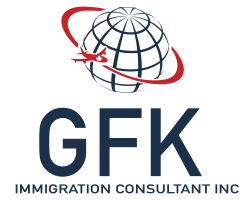
Alberta immigration changes, spring 2025.
Alberta, one of Canada’s most dynamic provinces, is a top destination for immigrants seeking new opportunities, a high quality of life, and a thriving economy.
The Alberta Advantage Immigration Program (AAIP) plays a pivotal role in welcoming skilled workers, entrepreneurs, and families to contribute to the province’s growth.
However, as of early 2025, significant updates to the AAIP have been introduced, reshaping how prospective immigrants can apply and settle in Alberta.
These changes, effective from March and April 2025, are critical for anyone planning to move to this western Canadian province.
In this comprehensive guide, we’ll dive into the five most impactful Alberta immigration changes you need to know about.
From new language test options to updated fees and shifts in program eligibility, this article is designed to help you stay informed and optimize your immigration journey.
Whether you’re a worker, an entrepreneur, or someone with family ties in Alberta, these updates could affect your plans.
Table of Contents
1. Acceptance of Pearson Test of English (PTE) Core for Language Requirements
Effective Date: April 1, 2025
What’s Changing: Starting April 1, 2025, the Alberta Advantage Immigration Program will accept the Pearson Test of English (PTE) Core as a valid language proficiency test for all AAIP streams.
This addition expands the options available to applicants, who can now choose PTE Core alongside other accepted tests like IELTS, CELPIP, and TEF Canada (for French).
Why It Matters: Language proficiency is a cornerstone of Canadian immigration programs, ensuring that newcomers can integrate into the workforce and community.
The inclusion of PTE Core reflects Alberta’s commitment to flexibility and accessibility for global applicants.
Unlike traditional tests, PTE Core is a computer-based exam known for its quick results—often delivered within 48 hours—and its focus on real-world English skills.
This could be a game-changer for applicants seeking a faster, more modern testing option.
Who’s Affected: This change applies to all AAIP streams, including worker streams (e.g., Alberta Opportunity Stream, Alberta Express Entry Stream) and entrepreneur streams (e.g., Graduate Entrepreneur Stream, Rural Entrepreneur Stream).
Applications submitted on or after April 1, 2025, can use PTE Core scores, with stream-specific details to be released in the coming weeks.
How to Prepare: If you’re planning to apply to AAIP in 2025, consider taking the PTE Core test if it suits your schedule and strengths.
Visit the official Pearson website to learn more about test format, scoring, and preparation resources.
With results delivered swiftly, this could accelerate your application timeline—a key advantage in a competitive immigration landscape.
2. Increased Application Fees for AAIP Worker Streams
Effective Date: April 1, 2025
What’s Changing: As of April 1, 2025, the application fee for AAIP worker streams will rise to $1,500.
This adjustment affects popular streams such as the Alberta Opportunity Stream, Alberta Express Entry Stream, Rural Renewal Stream, and Tourism and Hospitality Stream.
The increase aligns fees with the rising costs of service delivery, though other AAIP fees, including those for entrepreneur streams ($3,500) and additional requests (e.g., $150-$250), remain unchanged for now.
Why It Matters: Immigration fees are a significant consideration for applicants, and this hike could impact budgeting for individuals and families.
The $1,500 fee is a notable jump from previous rates, signalling Alberta’s intent to ensure the AAIP remains sustainable while supporting provincial growth.
For context, entrepreneur streams carry a higher $3,500 fee, reflecting the complexity of business-related applications.
Who’s Affected: Anyone submitting a worker stream application on or after April 1, 2025, will face the new fee.
This includes skilled workers, rural community nominees, and those in tourism and hospitality roles.
Existing applications submitted before this date are exempt from the increase.
How to Prepare: Budget and review the full fee schedule on the AAIP website to avoid surprises.
For example, a request for reconsideration costs $250, while a letter of support for a work permit is $150.
3. Updating Your Express Entry Profile: New Flexibility
Effective Date: March 17, 2025
What’s Changing: For Express Entry applicants under the AAIP, there’s a new option to update profiles that expire before a decision is made.
If you submitted your profile on or after September 30, 2024, and it’s nearing expiration, you can proactively refresh it in the portal.
The AAIP may also request a new profile if it no longer meets program criteria.
Why It Matters: The Express Entry system is a fast-paced, points-based pathway to permanent residency, and an expired profile can derail your application.
This update offers a lifeline, allowing candidates to maintain eligibility without starting from scratch.
It’s a practical response to delays in processing times, ensuring Alberta can still nominate qualified individuals.
Who’s Affected: The change applies to Alberta Express Entry Stream candidates whose profiles are expiring.
You’ll need to ensure your updated profile aligns with AAIP requirements, such as job offers, work experience, or language scores.
How to Prepare: Monitor your Express Entry profile’s expiration date and act quickly if it’s nearing its end.
Log into the portal, update your details (e.g., new test scores or work experience), and double-check AAIP criteria.
Proactivity here could keep your application alive and competitive.
4. Alberta Opts Out of Federal Work Permit Public Policy for 2025
Effective Date: March 17, 2025
What’s Changing: Alberta has chosen not to participate in the federal government’s “Temporary Public Policy to Facilitate Work Permits for Prospective Provincial Nominee Program Candidates” in 2025.
This policy would have streamlined work permits for PNP candidates, but Alberta declined to join, citing constraints on its ability to address provincial economic priorities with limited nomination allocations.
Why It Matters: This decision underscores Alberta’s focus on tailoring immigration to its unique needs, such as filling labour shortages in key sectors like energy, agriculture, and tourism.
Opting out allows the province to maintain control over its nomination process, thereby avoiding a uniform federal approach.
However, it may disappoint applicants hoping for faster work permit access.
Who’s Affected: Prospective AAIP nominees awaiting work permits in 2025 will need to follow standard pathways rather than relying on this temporary policy.
This could mean longer waits or additional steps for those transitioning from visitor or student status.
5. End of Family Connection and Occupation in Demand Pathway
Effective Date: March 17, 2025
What’s Changing: The Alberta Express Entry Stream will no longer invite candidates under the “Family Connection and Occupation in Demand” pathway as of March 17, 2025.
However, applicants can still earn points for having a qualifying family member (parent, sibling, or child) in Alberta who is a Canadian citizen or permanent resident over 18, via the Expression of Interest (EOI) system launched in September 2024.
Why It Matters: This pathway previously targeted candidates with family ties and in-demand skills, making it a popular route.
Its closure shifts the focus to broader EOI criteria, potentially levelling the playing field but reducing priority for family-based applications.
The change reflects Alberta’s evolving economic priorities, favouring flexibility over specific pathways.
Who’s Affected: Express Entry candidates relying on family connections or high-demand occupations (e.g., nurses, tradespeople) for invitations will need to adapt.
Existing applications under this pathway submitted before March 17, 2025, may still proceed.
How to Prepare: Maximize your EOI points by strengthening other factors, such as language scores, education, or work experience.
If you have family in Alberta, make sure to include their details in your profile to receive bonus points, even without the dedicated pathway.
These five updates are more than bureaucratic tweaks—they’re reshaping Alberta’s immigration landscape in 2025.
The acceptance of PTE Core offers a fresh testing option, while the fee hike signals rising costs for applicants.
Flexibility in Express Entry updates provides hope, but the opt-out from federal work permit policy and the end of a key pathway show Alberta’s independent streak.
Together, they create a mix of opportunity and challenge, making this a must-read topic for immigrants worldwide.
Planning to immigrate to Alberta in 2025? Stay ahead by adapting to these changes.
Book your PTE Core test, budget for higher fees, update your Express Entry profile, explore work permit alternatives, and rethink your EOI strategy.
Visit the official AAIP website for the latest details, and act fast—Alberta’s doors are open, but the rules are evolving.
Contact us today to explore the possibilities.
GFK Immigration
Gboyega Esan RCIC R708591
Phone: +1 (647) 225-0092
#studyincanada #studyabroad #canada #studyinuk #studyinaustralia #ielts #studentvisa #studyinusa #studyvisa #immigration #canadavisa #visa #education #internationalstudents #overseaseducation #study #canadaimmigration #highereducation #studyoverseas #canadastudyvisa #immigrationconsultant #australia #university #workpermit #canadapr #expressentry #studyineurope #immigrationcanada #Francophone
